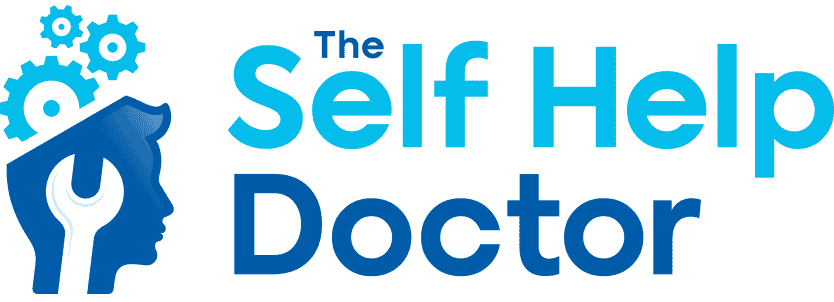Finding Rest: Effective CBT Solutions for Insomnia

Finding Rest: Effective CBT Solutions for Insomnia
Staring at the ceiling, wishing your mind had an off switch? If insomnia keeps you tossing and turning, you’re not alone. But there’s hope with CBT for insomnia—a method that has helped countless people regain restful nights. Imagine uncovering self-help sleep solutions tailored to your needs, all from the comfort of home. Our free mini-course offers a sneak peek into effective techniques to improve sleep quality. Ready to overcome insomnia? Start your journey today! Explore the free mini-course.
Understanding Insomnia and CBT

What is Insomnia?
Insomnia is a common sleep disorder that makes it difficult to fall asleep, stay asleep, or both. This condition can lead to daytime fatigue, difficulty concentrating, and mood disturbances. Chronic insomnia often lasts for months or even years, affecting an individual’s quality of life. The causes of insomnia can vary, including stress, anxiety, depression, poor sleep habits, and certain medical conditions. Understanding the underlying factors contributing to insomnia is crucial for effective treatment.
Insomnia affects millions worldwide. It disrupts not only nightly rest but also daily functioning. Identifying whether insomnia is short-term or chronic is essential for determining appropriate solutions.
A comprehensive approach to managing insomnia involves addressing both the symptoms and root causes. By doing so, individuals can work towards achieving better sleep quality and improved overall well-being.
Origins of CBT for Insomnia
Cognitive Behavioral Therapy (CBT) for insomnia is a structured program designed to help individuals change behaviors and thoughts that contribute to sleeping problems. Developed from cognitive-behavioral principles, it focuses on identifying and modifying negative patterns associated with insomnia.
CBT for insomnia emerged as an alternative to medication-based treatments, emphasizing long-term solutions rather than short-term fixes. It integrates cognitive therapy with behavioral strategies, helping individuals understand how their thoughts and actions impact sleep.
By addressing cognitive distortions and maladaptive behaviors, CBT empowers individuals to establish healthier sleep patterns. This approach is recognized for its effectiveness in managing chronic insomnia, providing individuals with tools to maintain restful sleep consistently.
Key Benefits of CBT
CBT offers several benefits for those struggling with insomnia. It provides a structured framework to address the root causes of sleep disturbances through cognitive and behavioral strategies.
One significant advantage is that CBT helps individuals develop self-help sleep solutions tailored to their unique needs. This personalized approach fosters greater independence in managing insomnia symptoms.
Furthermore, CBT for insomnia is non-invasive and has no side effects, unlike some medications. It equips individuals with practical skills to overcome insomnia at home, promoting long-term improvements in sleep quality and overall well-being.
Techniques to Improve Sleep Quality

Self-Help Sleep Solutions
Developing personalized self-help sleep solutions is essential for managing insomnia effectively. These solutions often involve lifestyle changes and cognitive strategies aimed at improving sleep habits.
-
Establish a consistent sleep schedule: Going to bed and waking up at the same time each day helps regulate the body’s internal clock.
-
Create a relaxing bedtime routine: Engaging in calming activities before bed can signal the body that it’s time to wind down.
-
Optimize the sleep environment: Ensure the bedroom is cool, dark, and quiet to promote restful sleep.
Self-help solutions empower individuals to take charge of their sleep patterns, fostering a sense of autonomy and confidence in overcoming insomnia.
Practical CBT Techniques
CBT techniques for insomnia involve structured approaches to modify negative thoughts and behaviors related to sleep. These techniques aim to improve sleep quality by addressing underlying psychological factors.
Cognitive restructuring involves identifying and challenging irrational beliefs about sleep. By replacing negative thoughts with positive ones, individuals can reduce anxiety and stress associated with insomnia.
Sleep restriction therapy limits time spent in bed to the actual time spent sleeping, gradually increasing sleep duration as efficiency improves. This technique helps rebuild the association between bed and sleep, reducing wakefulness during the night.
Stimulus control therapy encourages using the bed only for sleep and relaxation, minimizing activities that might create negative associations with the bedtime environment.
Overcoming Insomnia at Home
Overcoming insomnia at home involves implementing practical strategies and maintaining consistency in sleep habits. By integrating CBT techniques into daily routines, individuals can effectively manage and improve their sleep quality.
-
Maintain a sleep diary: Tracking sleep patterns helps identify trends and areas for improvement.
-
Stay active during the day: Regular physical activity promotes better sleep by reducing stress and increasing relaxation.
-
Limit caffeine and electronic use: Avoiding stimulants and screens close to bedtime can improve sleep onset.
These strategies, combined with CBT techniques, offer a comprehensive approach to overcoming insomnia. By focusing on behavioral and cognitive changes, individuals can achieve restful nights and enhanced well-being.
Enroll in Your Path to Restful Nights

CBT Course Sneak Peek
Our free mini-course provides a sneak peek into the comprehensive CBT program designed to help individuals manage insomnia effectively. It covers key techniques and strategies used in CBT for insomnia, offering valuable insights into the process.
Participants will learn how to develop personalized self-help sleep solutions, implement practical CBT techniques, and overcome insomnia at home. The mini-course serves as an introduction to the full program, highlighting the benefits of using CBT to improve sleep quality.
By exploring this preview, individuals can gain a better understanding of how CBT can work for them, empowering them to take the first steps toward restful nights.
Start watching the free mini-course now 🌟
Empower Your Sleep Journey 🌙
Empowering your sleep journey involves taking proactive steps to manage insomnia and improve overall well-being. By utilizing CBT techniques and self-help sleep solutions, individuals can regain control over their sleep patterns.
-
Set realistic sleep goals: Establish achievable objectives for improving sleep quality and consistency.
-
Practice relaxation techniques: Incorporate mindfulness and breathing exercises into your routine to reduce stress and anxiety.
-
Seek support when needed: Consider reaching out to sleep specialists or support groups for additional guidance and encouragement.
Taking charge of your sleep journey fosters personal growth and empowerment, leading to more restful nights and a healthier lifestyle. 🌙





